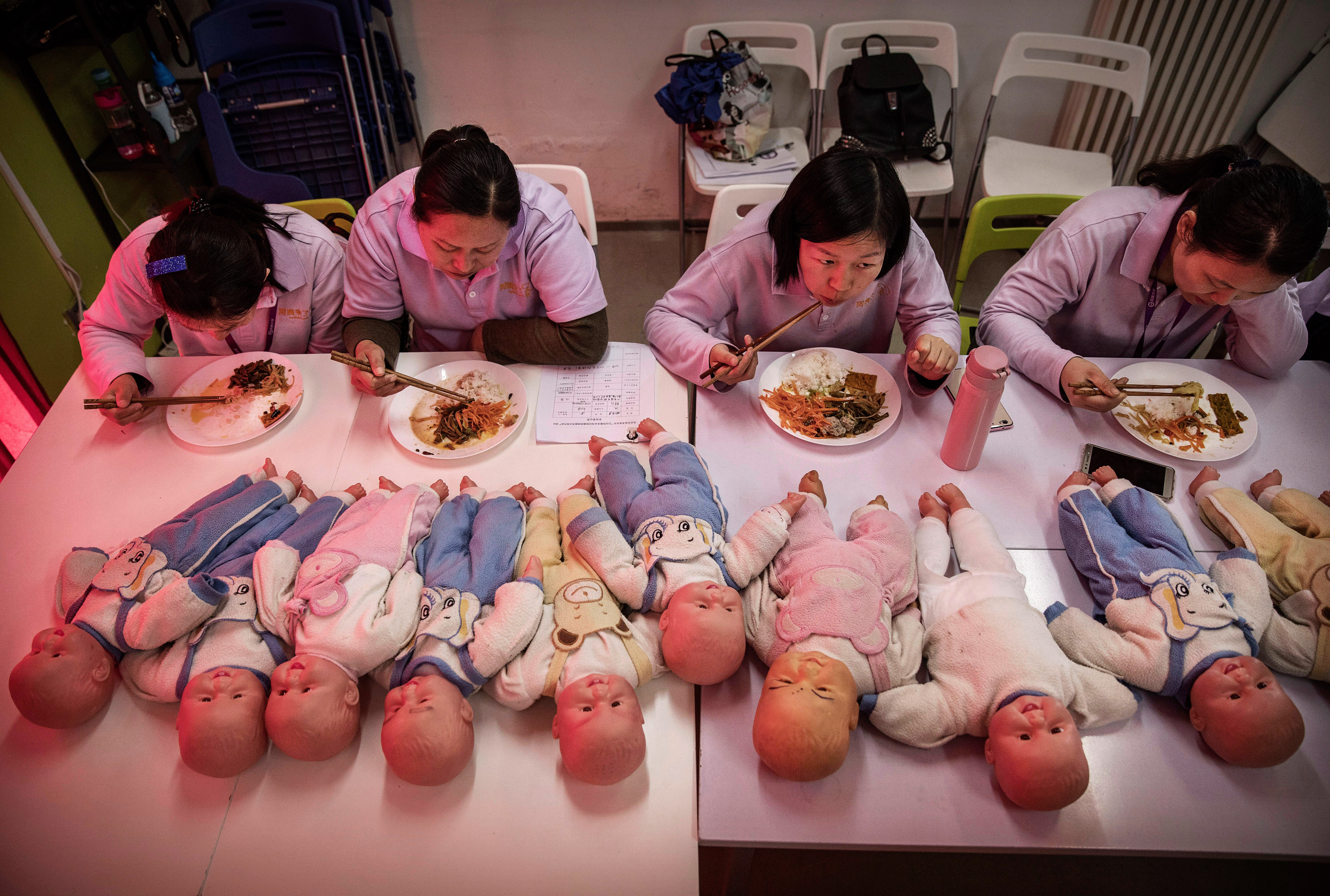Women in China routinely face pregnancy discrimination and situation ‘could worsen’ with three baby policy
‘Age between around 30 and 35, already have children, good looking, and good disposition,’ says one job ad

Your support helps us to tell the story
From reproductive rights to climate change to Big Tech, The Independent is on the ground when the story is developing. Whether it's investigating the financials of Elon Musk's pro-Trump PAC or producing our latest documentary, 'The A Word', which shines a light on the American women fighting for reproductive rights, we know how important it is to parse out the facts from the messaging.
At such a critical moment in US history, we need reporters on the ground. Your donation allows us to keep sending journalists to speak to both sides of the story.
The Independent is trusted by Americans across the entire political spectrum. And unlike many other quality news outlets, we choose not to lock Americans out of our reporting and analysis with paywalls. We believe quality journalism should be available to everyone, paid for by those who can afford it.
Your support makes all the difference.Women working in China routinely face staggering pregnancy discrimination as a direct result of the country’s two-child policy, a new report has found.
The measure, which allows all couples to have two children, was introduced in 2016 and signalled an end to the ongoing one-child policy which had been in force for 35 years in China.
Earlier this week, China announced it would allow parents to have up to three children, because of a decline in birth rates.
A study by Human Rights Watch found that since the introduction of the two-child policy, women are being punished for being able to go on maternity leave twice.
Researchers warned that many firms discriminate against women via job advertisements, interviews, and behaviour in the workplace itself - saying some companies make working conditions for pregnant women so harsh they are pushed into stepping down.
The report cited the example of a pregnant worker at a firm in northeast Jilin province, who was seven-and-a-half months pregnant, who was forced to work at a construction site in the winter.
It also said a number of job ads explicitly say they require men for the role or women applicants with children due to fears those without kids will be more likely to take time off if they fall pregnant.
“Age between around 30 and 35, already have children, good looking, and good disposition,” said an ad recently posted on job search site 51job.com for a managerial role in a clothing company in Beijing.
Researchers said many women reported being probed about whether they have children or have plans to do so in job interviews - with a recent college graduate saying all five companies she gained interviews for asked about her marriage and childbearing plans. Three of the firms informed her they would not offer her the job if she was keen to have a child.
While a mother-of-one was asked to sign a contract agreeing to not having a second child for at least three years as a condition of being given the job.
Yaqiu Wang, a researcher at Human Rights Watch who specialises in China, said: “Many women have taken to the internet, the media, and the courts to tell their stories of workplace abuse.
“By pushing for a higher birthrate without adequate employment protections, the Chinese government has given employers a license to harass and discriminate.”
And the shift to a three baby policy may worsen the situation, the rights group said.
Sophie Richardson, China director at Human Rights Watch, told The Independent: "Beijing’s shift to a three-child policy is hardly likely to mitigate pregnancy-related discrimination, and may indeed worsen it.
"Beijing needs to drop all restrictions on reproductive rights, work against all formed of employment discrimination, and level the playing field on parental leave. Only then might we see real positive change."
Previous research by Human Rights Watch found female civil servants face discrimination and sexual harassment in China - with one in five civil service job ads in the nation explicitly being for “men only”.


Join our commenting forum
Join thought-provoking conversations, follow other Independent readers and see their replies
Comments